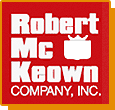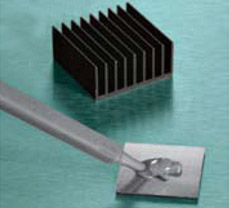-
Conformal Coatings
conformal-coatings
-
Silicone Dow Electronics Conformal Coatings
Silicones and Electronics
Long-term, reliable protection of sensitive circuits and components has become increasingly more important in many delicate and demanding electronic applications. Silicones function over a wide temperature and humidity range as durable dielectric insulation, as barriers against environmental contaminants and as stress-relieving shock and vibration absorbers. In addition to sustaining their physical and electrical properties over a broad range of operating conditions, silicones are resistant to ozone and ultraviolet degradation and have good chemical stability. Most Dow silicones contain significantly less solvent than organic coatings and are available in a wide variety of cure systems.
Conformal Coatings
Conformal coatings are materials applied in thin layers (typically a few mils or microns) onto printed circuits or other electronic substrates. They provide environmental and mechanical protection to significantly extend the life of the components and circuitry. Conformal coatings are traditionally applied by dipping, spraying or simple flow coating, and increasingly by select coating or robotic dispensing. Conformal coatings protect electronic printed circuit boards from moisture and contaminants, preventing short circuits and corrosion of conductors and solder joints. They also minimize dendritic growth and the electromigration of metal between conductors. In addition, the use of conformal coatings protects circuits and components from abrasion and solvents. Stress relief is also provided, as is protection of the insulation resistance of the circuit board. Dow coatings are particularly useful for protecting circuitry in severe-service environments, while maintaining a low-stress environment for components and connections. These severe environments range from everyday temperature and humidity extremes seen in consumer electronics to the more harsh automotive under-hood environment, up to the extreme conditions demanded in military or industrial applications. The coatings are supplied in a variety of forms that can be cured at room temperature or accelerated by heat, adaptable to your processing needs. Most conformal coatings contain a UV indicator enabling blacklight visualization of the coating.
Dow Conformal Coatings are supplied in three product families:- Solventless RTV elastomeric conformal coatings require atmospheric moisture to cure. This family of coatings is rapidly gaining popularity due to its environmentally friendly and solventless formulations, its rapid cure rates that can be dramatically accelerated by mildheat, and its cost effectiveness. These elastomers, when cured, offer the optimum stress relief for components and interconnections in a variety of service environments.
- Solventless heat cure conformal coatings are designed for rapid processing at moderate temps (above 100 °C). They require some heating to cure, offering long bath life at room temperature. Like the room-temperature-curing elastomers, these products offer optimum stress relief for components and interconnections in a variety of service environments. This product line also features coatings that are manufactured for controlled volatility.
- RTV elastoplastic conformal coatings have firm, dry surfaces for better handling and abrasion resistance after cure. They require atmospheric moisture to cure and their cure rates can be accelerated by mild heat. They are supplied in solvent, with low-VOC versions available.
-
Epoxy Coatings Product
Conformal coatings provide a "thin section" solution for circuit boards requiring protection from moisture, chemicals, vibration and other contaminates.
UV7993 is a UV acrylated urethane system that offers tough, chemical resistance while maintaining a low stress resiliency for sensitive components. This fast curing system is widely used for white goods, appliances and commercial/industrial applications.
SC3613 is an industry standard for applications demanding microelectronic grade purity as circuits are protected within a soft, silicone medium from dust, contaminates and vibration environments. This silicone coating offers high temperature performance often required from automotive and industrial circuit manufacturers.
Robert McKeown offers a variety of adhesive and sealant products for a wide range of commercial and industrial applications. Our silicone epoxy adhesives and sealants, in particular, are ideal for applications such as:
FEATURES AND USES OF ELECTRONICS SEALANTS AND ADHESIVES
Providing ultimate reliability and longevity, our electronics adhesives and sealants can be used to form bonds to many different surfaces and substrates, including:
- Ceramics
- Metals
- Glass
- Filled plastics
These specialized solutions eliminate the need for mechanical fastening and clamping while allowing for optimal ease of processing. Reliable and efficient in temperatures ranging from -45 °C to 200 °C, our electronics adhesives and sealants provide excellent dielectric insulation.
Most silicone formulations are solventless, eliminating the need for special storage, ventilation, or handling. And because many of our electronics adhesives and solvents are reworkable, they offer great flexibility and allow for easier module repair.
Electronics adhesives and sealants are frequently used in: automotive, communications, industrial, and energy industries, as well as consumer devices.
Extremely versatile, these adhesives can be used for:
- Sealing lids and housing grooves
- Cushioning or stabilizing fragile components
- Affixing components such as capacitors and coils to circuit boards
- Adhering module lids and baseplates
- Gasketing
SILICONE ADHESIVES
One of the most popular types of electronics adhesives, silicone adhesives provide excellent flexibility and high heat resistance, making them ideal for electrical, automotive, aerospace, and construction industries. There are several varieties of silicone adhesives available, including:
- Two-component systems that require a curing agent
- One-component systems that cure through air moisture
- UV or EB radiation curing adhesives
- Pressure-sensitive versions that adhere to surfaces with little pressure
RTV sealants (room-temperature vulcanizing) begin to cure as soon as they’re exposed to moisture in the air, so they must be used quickly. Pressure-sensitive sealants offer a permanent tackiness. UV- or radiation-cured sealants, on the other hand, require UV light to cure, while thermoset silicone sealants require heat to cure. Although not as strong as other sealants or adhesives, electrical silicone sealants remain flexible even when fully dried or cured. Various types of silicone sealants serve as ideal solutions for high-heat applications like engine gaskets.
In electronics fabrication, silicone adhesive sealants are often used for fixing parts on circuit boards, LCD module assembly, general sealing, and component protection. Specific formulations differ depending on intended use and can be customized to allow for enhanced thermal conductivity, superior protection of metal electrodes, and faster cure times. These sealants are available in chemical-, heat-, mildew-, and oil-resistant formulations to meet a wide range of application needs.
Industrial silicone epoxy is used for:
- General-purpose fixture sealing of tubs
- Windows, ductwork
- Gaskets
- General-purpose bonding
- Sealing
THERMAL SEALANTS
High temperatures often present problems for conventional adhesive materials and can affect printed circuit boards and assemblies. At Robert McKeown, we offer the highest-level special adhesive grades of thermal sealants, which allow for enhanced thermal conductivity. Both low-viscosity liquids and non-slump formations are available in two-cure chemistries.
We also offer one-part moisture-cure grades, which use room-temperature processing to cut back on equipment needs. After cure, the materials form strong but flexible bonds, which protect from mechanical stress and vibration. Both one- and two-part heat-cure solutions accelerate processing and support high throughput production.
Heat resistant silicone adhesives are extremely versatile materials and dispense easily at room temperature, but can also cure quickly at any thickness level at temperatures as low as 90°C. Efficacy and functionality are improved when higher temperatures accelerate cure times.
CHEMICAL RESISTANT ADHESIVES
Chemical resistant silicone adhesives are commonly used in:
- Chemical processing plants
- Chemical piping and tanks
- Medical devices
These adhesives can reliably protect against a wide range of chemicals and harsh materials, including acid, alcohol, and fuel. Depending on specific application requirements, they can also provide resistance against solvents, bases, sterilization, and water.
EPOXY BASED ADHESIVES
Epoxy based adhesives are created by mixing a resin and a hardener. Curing is initiated when the resin is mixed with a certain catalyst. The covalent bonds resulting from this combination determine the rigidity and strength of the epoxy sealant.
Epoxy adhesives can reliably adhere to a variety of materials and are ideal for applications demanding chemical resistance, high strength, and low stress. Thermally conductive, microelectronic-grade, general-purpose, high-temperature and chemical resistant epoxy adhesives are available as both one- and two-part solutions. Epoxy adhesive and sealants allow for room temperature, thermal, or UV-curing capabilities.



